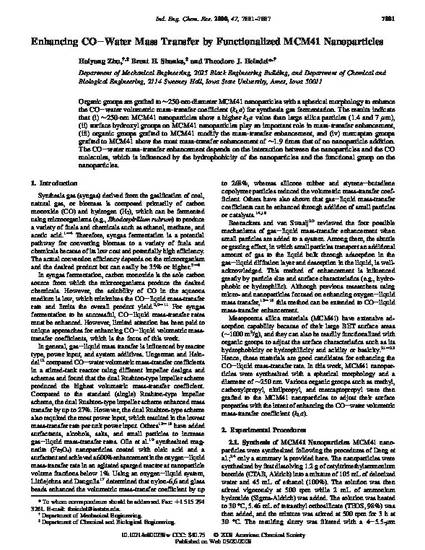
Organic groups are grafted to 250-nm-diameter MCM41 nanoparticles with a spherical morphology to enhance the CO−water volumetric mass-transfer coefficient (kLa) for synthesis gas fermentation. The results indicate that (i) 250-nm MCM41 nanoparticles show a higherkLa value than large silica particles (1.4 and 7 μm), (ii) surface hydroxyl groups on MCM41 nanoparticles play an important role in mass-transfer enhancement, (iii) organic groups grafted to MCM41 modify the mass-transfer enhancement, and (iv) mercaptan groups grafted to MCM41 show the most mass-transfer enhancement of 1.9 times that of no nanoparticle addition. The CO−water mass-transfer enhancement depends on the interaction between the nanoparticles and the CO molecules, which is influenced by the hydrophobicity of the nanoparticles and the functional group on the nanoparticles.
Available at: http://works.bepress.com/brent_shanks/6/

Reprinted with permission from Industrial & Chemistry Engineering Research 47 (2008): 7881–7887, doi:10.1021/ie800238w. Copyright 2008 American Chemical Society.